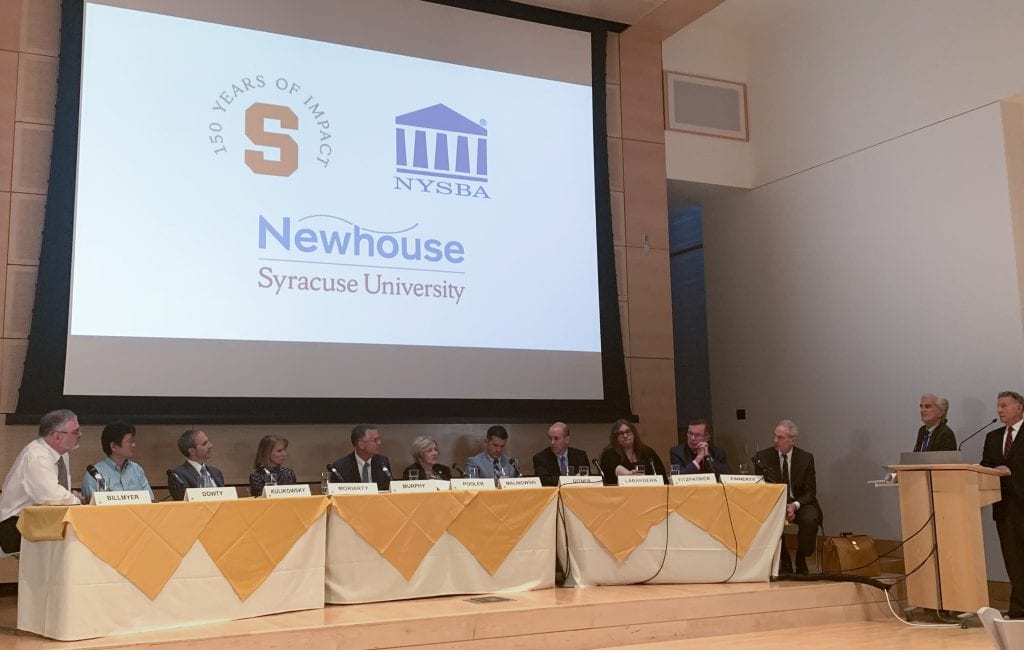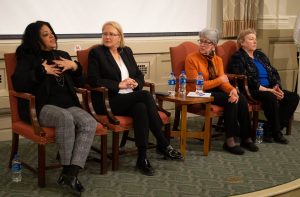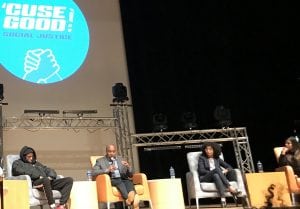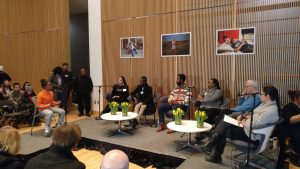Journalists and attorneys discuss ethics at the Newhouse Free Press panel
Journalists, lawyers discuss ethics at Newhouse Free Press panel

A panel comprised of journalists, lawyers, law enforcement and other professionals discussed legal and ethical issues in journalism at the New York Fair Trial Free Press Conference on Wednesday afternoon. The panel was moderated by Judges Rex Smith and Albert Rosenblatt.
“We all share the goal of a free society,” said Rosenblatt during his introduction, “But the institution of the judiciary doesn’t always work in perfect symmetry with the institution of the free press.”
The panelists were asked a series of questions based on a hypothetical situation written for discussion. The hypothetical involved a presidential debate of two highly controversial political candidates held at a college campus. Protesters were present at the debate and ultimately, one of the candidates was assassinated. Hours later a campus publication published a story stating that, according to an anonymous source, a fringe terrorist group with a small subdivision on campus was responsible.
The panel then went through the hypothetical and debated laws that differ from state to state, as well as gray areas and common practices in all fields.
In the hypothetical, a student journalist released information from a confidential source without corroborating the information, where as a professional media organization would have taken precautionary measures, said journalist Jeff Kulikowsky.
When asked if shield laws — laws that protect journalists from revealing confidential sources — applied to student journalists, District Attorney William Fitzpatrick said that in New York State, shield laws only apply to professional journalists, but that he personally would treat the student journalist as a professional.
Another topic the panel discussed was whether law enforcement should be able to confiscate cell phones or urge members of the public and the press not to use them. Attorney Daniel Gitner said he could understand security measures of this nature being taken in the presence of public officials, which is done in some courtrooms across the country.
CBS reporter Erin Moriarty said she would only accept the conditions of no cell phone use if trusted law enforcement officials told her that using it had potential to detonate a bomb.
The moderators asked about journalists respecting the law when covering a similar situation to the hypothetical, and how far a journalist would go to get a story. Journalist Douglass Dowty shared a story about how he was handcuffed while covering an event, but said he has never cared if he pushed the boundaries as long as he was doing his job ethically. Fitzpatrick added that he has never had to prosecute a journalist.
The volley of ethical questions from the moderators were met with a variation of answers from the panelists to show there is no singular correct way to address all ethical situations when it comes to journalism.








